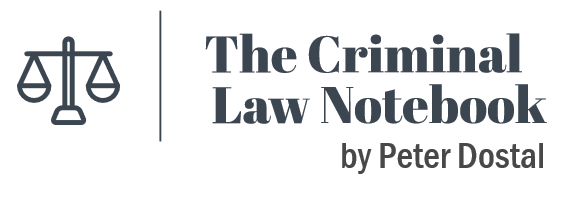Alternative Methods of Theft
General Principles
- Theft by person required to account
330 (1) Every one commits theft who, having received anything from any person on terms that require him to account for or pay it or the proceeds of it or a part of the proceeds to that person or another person, fraudulently fails to account for or pay it or the proceeds of it or the part of the proceeds of it accordingly.
- Effect of entry in account
(2) Where subsection (1) [theft by person required to account] otherwise applies, but one of the terms is that the thing received or the proceeds or part of the proceeds of it shall be an item in a debtor and creditor account between the person who receives the thing and the person to whom he is to account for or to pay it, and that the latter shall rely only on the liability of the other as his debtor in respect thereof, a proper entry in that account of the thing received or the proceeds or part of the proceeds of it, as the case may be, is a sufficient accounting therefor, and no fraudulent conversion of the thing or the proceeds or part of the proceeds of it thereby accounted for shall be deemed to have taken place.
R.S., c. C-34, s. 290.
[annotation(s) added]
- Theft by person holding power of attorney
331. Every one commits theft who, being entrusted, whether solely or jointly with another person, with a power of attorney for the sale, mortgage, pledge or other disposition of real or personal property, fraudulently sells, mortgages, pledges or otherwise disposes of the property or any part of it, or fraudulently converts the proceeds of a sale, mortgage, pledge or other disposition of the property, or any part of the proceeds, to a purpose other than that for which he was entrusted by the power of attorney.
R.S., c. C-34, s. 291.
- Misappropriation of money held under direction
332 (1) Every one commits theft who, having received, either solely or jointly with another person, money or valuable security or a power of attorney for the sale of real or personal property, with a direction that the money or a part of it, or the proceeds or a part of the proceeds of the security or the property shall be applied to a purpose or paid to a person specified in the direction, fraudulently and contrary to the direction applies to any other purpose or pays to any other person the money or proceeds or any part of it.
- Effect of entry in account
(2) This section does not apply where a person who receives anything mentioned in subsection (1) [misappropriation of money held under direction] and the person from whom he receives it deal with each other on such terms that all money paid to the former would, in the absence of any such direction, be properly treated as an item in a debtor and creditor account between them, unless the direction is in writing.
R.S., c. C-34, s. 292.
[annotation(s) added]
Motor Vehicle or Vessel Theft
- Motor vehicle theft
333.1 (1) Everyone who commits theft is, if the property stolen is a motor vehicle, guilty of an offence and liable
- (a) on proceedings by way of indictment, to imprisonment for a term of not more than 10 years, and to a minimum punishment of imprisonment for a term of six months in the case of a third or subsequent offence under this subsection; or
- (b) on summary conviction, to imprisonment for a term of not more than 18 months.
- Subsequent offences
(2) For the purpose of determining whether a convicted person has committed a third or subsequent offence, an offence for which the person was previously convicted is considered to be an earlier offence whether it was prosecuted by indictment or by way of summary conviction proceedings.
2010, c. 14, s. 3.
